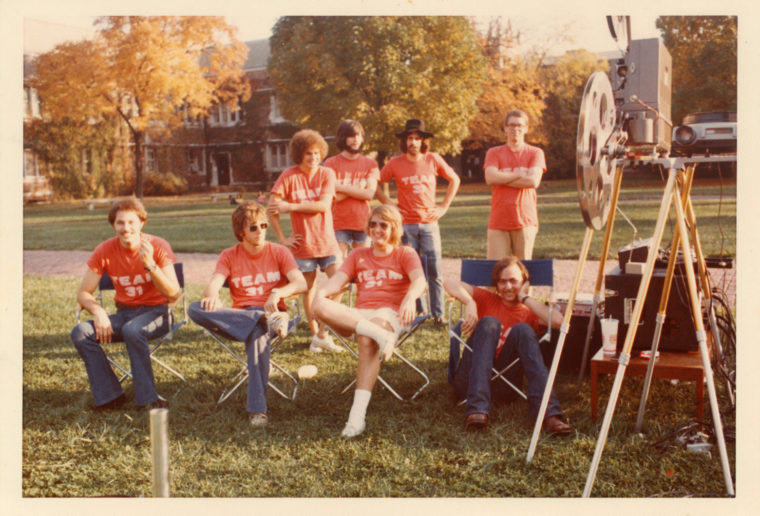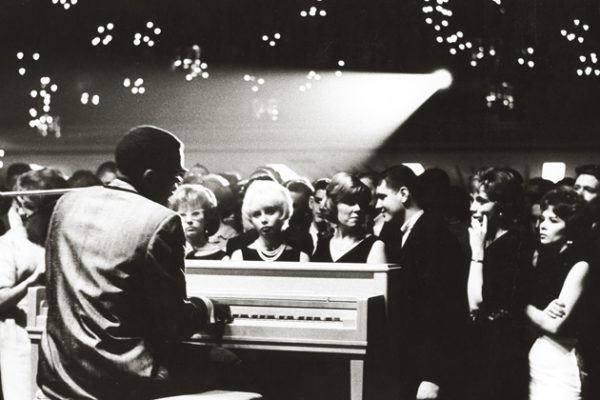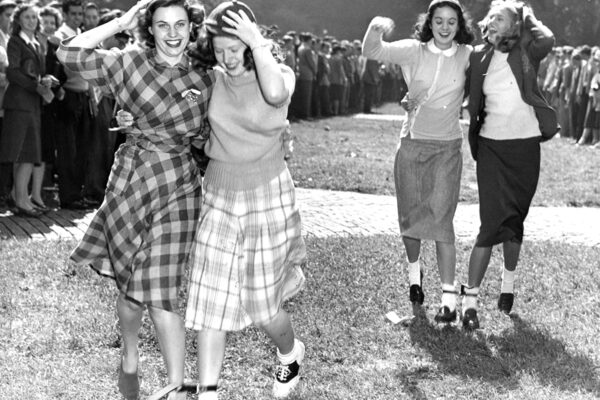In 1975, when first-year student Andy Friedenberg wrote an essay arguing for the creation of a film festival in Brookings Quad, he was primarily aiming for a good grade. But when his professor asked if he was going to follow through with the idea, Friedenberg welcomed the challenge, and his essay became a proposal for a new campus event.
Friedenberg’s first step was to go to Gene Boomer, a lecturer in performing arts, who advised him and helped secure the equipment to show films outdoors. As a mentor to Friedenberg and future WILD planners, Boomer insisted on close attention to every detail, encouraging Friedenberg to develop his idea into a professional enterprise. A gigantic screen would be rented and set up in front of the Quad stage, accompanied by a state-of-the-art Klipsch sound system. Organizational leadership, marketing, set up, take down, security and a back-up location would all be crucial considerations.
To pull this off, Friedenberg needed a team. He went to his suitemates in Rutledge Hall, Suite 31, and they were eager to help. Suitemate Jason Rugo, AB ’77, became his right-hand man and came up with a name for their group. “I was working on a Student Life story on development in St. Louis and had just interviewed guys from the architectural firm Team 4,” Rugo said. “I thought that was the coolest name, so I suggested Team 31, after our suite number.” And so Team 31 Productions was founded, and, grammar aside, the event was dubbed Walk-In, Lay-Down (WILD) Theater.
“The concept was that this was to be an outdoor film event that included students, faculty and administration. That was very important to us. We wanted to make it campuswide,” Friedenberg said. The next step was to secure funding. The sororities were the first to give money, and other supporters followed.
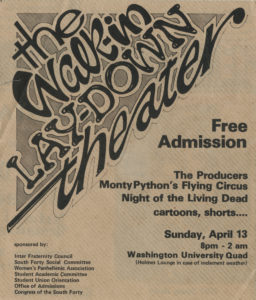
Team 31 then reached out for volunteers and selected the movie (Monty Python’s And Now for Something Completely Different). They also adopted the unique approach of sending out formal invitations to the faculty and staff. Everyone was encouraged to bring lawn chairs, blankets and picnic baskets to the Quad for a lovely evening under the stars.
Unfortunately, it didn’t work out that way. When the day finally arrived, it poured rain. “We moved it inside to Holmes Lounge,” recalled Friedenberg, “and it was absolutely packed, standing room only.” Despite the weather, WILD was a great success. “We couldn’t believe what a hit we had. Everyone on Team 31 Productions was hugging each other. Then we did it outdoors next year, and it was a huge hit.”
“The atmosphere was electric, and people just loved it,” said Rugo of subsequent WILD events. “We’d go to 1:30 in the morning. Sometimes it was three movies with cartoons in between, kind of like an old-fashioned movie experience, with maybe a horror movie to wrap it up late at night. You could just walk in and out of the Quad and stay as long as you wanted.”
After his sophomore year, Friedenberg transferred from Washington University to Boston University to finish his communications studies. He asked Rugo if he would take over Team 31 Productions. “There were no elections. It was just ‘will you do it?’” Friedenberg said.
“I figured my duty was to try and make this perpetual,” said Rugo, who became the second head of the group. In order to ensure Team 31’s future, Rugo put his focus into the esprit de corps of the group, making it a privilege to be a member. He hired an art student to design a professional logo that Rugo and team then put on t-shirts that caught on like wildfire. Plus, they created a special two-minute Team 31 video intro to show before the event. Rugo also recruited the next head of WILD, Stan Kriesberg, BSBA ’79, cementing the tradition of passing down Team 31’s leadership each year.
Just add music …
Bob Pravder, BSBA ’80, attended his first WILD as a first-year student in 1976. “It was one of the most fun things I had ever done, and I got involved with Team 31 later that year,” he said. Further, when Kriesberg graduated, Pravder took over Team 31’s leadership. Gene Boomer’s mentorship continued as well. “Gene was passionate about training us to become leaders,” said Pravder, now a successful CFO for Yum Earth.
In April 1978, Western swing revivalists Asleep at the Wheel played WILD before the two movies were screened. From then on, there was an increasing push to make music part of the event. Pravder recalls navigating this shift: “The real question was if we wanted to use an outside professional band or a campus band. If you get so much for a band and don’t use it, you wouldn’t get it the following year; so if you use a campus band, you lose your funding… It was a question of maintaining the show in one direction.”
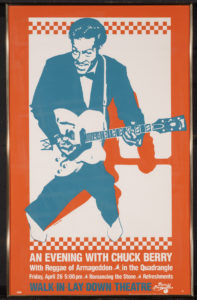
In the early 1980s, Team 31 focused on bringing big-name musical acts to campus, sometimes outside of the WILD format. On Halloween, 1980, the group presented a satellite broadcast of a Grateful Dead show in Francis Fieldhouse. In 1981, Team 31 sponsored a performance by U2 in Graham Chapel during the band’s first U.S. tour. Other WILD performers during this time included the Association, Atlanta Rhythm Section, and the Guess Who. And in April 1985, Chuck Berry played WILD in the Quad, followed by a screening of Romancing the Stone.
As the 1980s went on, fraternities and other groups would bring couches and kegs to the festivities, and the celebratory atmosphere of WILD became increasingly raucous. The high-caliber performances continued with artists such as Gregg Allman, Steve Earle and the Romantics. The fall 1991 lineup — Warren Zevon followed by a screening of Silence of the Lambs — marked the last time a movie was shown at WILD. Going forward, music would be the focus.
As hip-hop grew in popularity during the 1990s and 2000s, WILD brought in headliners such as De La Soul, A Tribe Called Quest, Outkast, The Roots and Busta Rhymes. Other rock and funk acts included They Might Be Giants, George Clinton and the P-Funk All-Stars, Guided by Voices, Robert Randolph & the Family Band, and the Black Keys. In 2003, in order to reduce the number of alcohol-related incidents related to WILD, students were no longer allowed to bring kegs into the Quad.
“It definitely changed the event,” recalls Evan Brody, co-chair of the 2003 WILD. “Instead of an all-day hangout in the Quad leading up to the musical performances, it turned into just a nighttime concert.”
Brody still remembers his favorite moment of putting on WILD. “It was when the headliner hit the stage, and I could take a breath and appreciate the moment. A ton of work goes into the event, so there is no time to relax until the main act is on stage.”
Today’s WILD
In 2012, a significant shift occurred when Team 31 merged into the Social Programming Board (SPB), which also puts on campus comedy shows, film screenings, concerts and happy hours. While the highly motivated team of students putting on WILD remains, the “Team 31” moniker fell by the wayside.
The practice of bringing couches to the Quad still continues, sort of. While actual couches are off limits, SPB has arranged for a number of inflatable couches to be brought in each year. In 2013, one of those couches made its way to the stage as indie-rock band Yeasayer’s Chris Keating incorporated it into his performance.
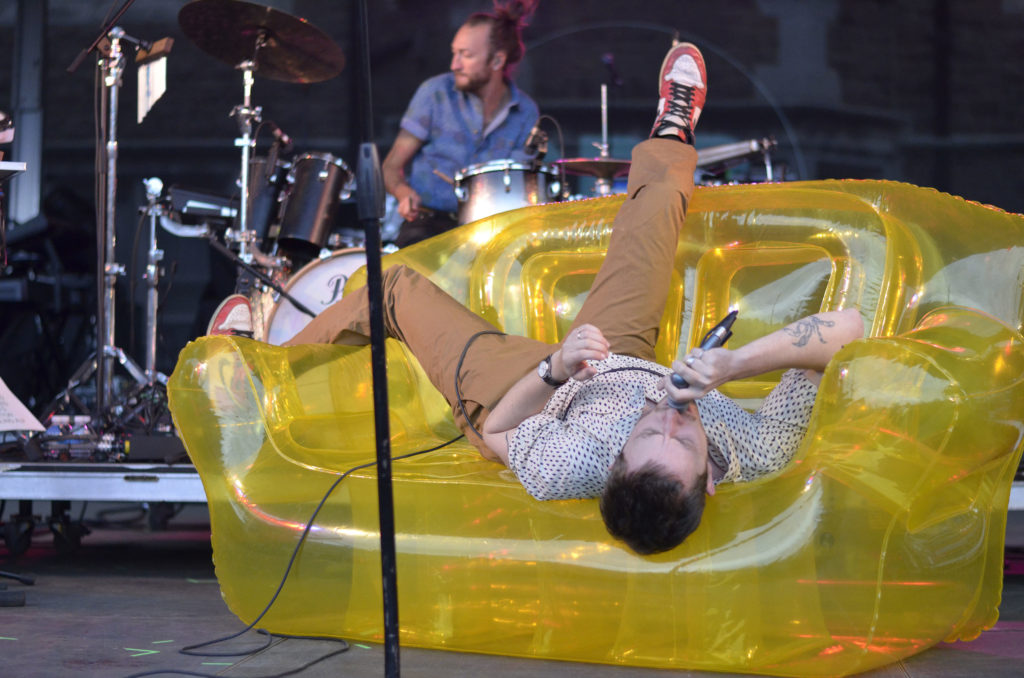
While the focus of WILD has moved from movies to music, and musical genres and tastes have changed across the years, one thing has remained constant: The students run the show. Current SPB president and rising senior Dina Guilak describes how performers are chosen today. “For every WILD, we send a survey of about 12 potential artists who are in our budget range and available on the date to the entire student body. The exec board is then required by our constitution to follow the survey results,” Guilak said. “So who comes for WILD is decided entirely by the student body, which is a cool aspect. Everything we do is for our students.”
Guilak, who was appointed SPB president in September 2017, is interested in maintaining funding for two opening acts each WILD, allowing for more musical variety to be represented. In terms of environmental sustainability, SPB recently went from boxed to canned water because canned water can be recycled. And in addition to providing free food and drink, SPB recently hired face painters to roam the Quad. “They brought a sheet of designs students could choose from that were glittery and celebratory. People had a lot of fun with them, and I feel like half the students had their faces painted.” Guilak and others are currently in the nine-month planning process for the October 2018 WILD.
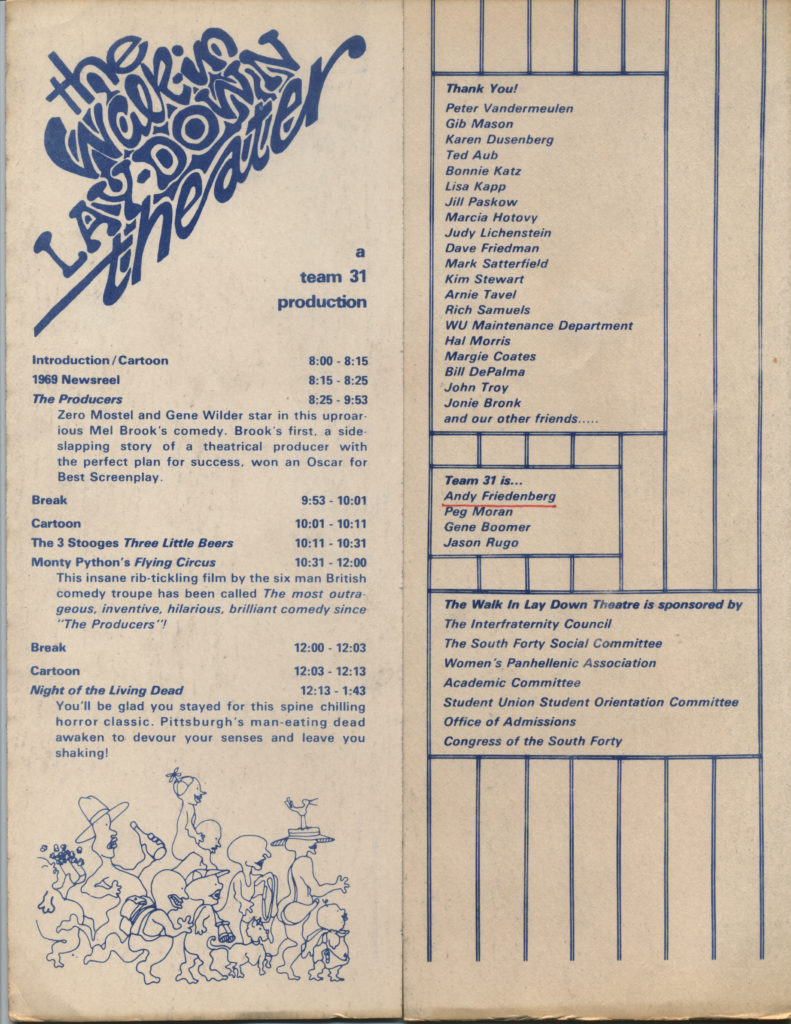
Lasting Influence
WILD has had a transformative effect on the many students involved in its planning across the years. WILD founder Andy Friedenberg later became a regional marketing director for United Artists, Metro-Goldwyn-Mayer and Columbia Studios. In the 1990s, he created the “Floating Film Festival,” which showed movies from a barge equipped with a huge screen and sound system, while people gathered on the beaches of San Diego to watch. (Of course, Jaws was among the films.) He now runs the Coronado Island Film Festival and the Cinema Society. “WILD gave me the foundation to say ‘try it,’” Friedenberg said. “It was taking an idea and turning it into a first-class presentation.”
Bob Pravder went on to work for Paramount Pictures, helping build the company’s computer network in the early 1980s and later serving as manager of financial planning and analysis. “It’s not like someone fresh out of high school would have a lot of experience running shows where 3,000 people show up,” Pravder said. “That was why it was so impactful. It pushed you to limits you had never imagined before.”
Many other alumni found working on WILD an invaluable experience. “It gave me early exposure to large-scale project management — working with a large budget, multiple vendors, and a large team of volunteers,” said Evan Brody, founder of a software business based in the Dallas/Fort Worth area. Jason Rugo, now a lawyer in the St. Louis area, learned from WILD how to build an organization and make it something people wanted to be a part of.
And current student Dina Guilak, a psychology major and marketing minor, lists her takeaways so far as experience in leadership, team management and communicating professionally. Moreover, she’s learned the importance of loving her work. “It’s the best thing I’ve ever done,” Guilak said, “and I want to do something in my life that this feeling translates to.”
For the student community as a whole, WILD, attended by thousands of undergraduates each semester, remains a well-loved and fondly remembered component of the WashU experience. After nearly 45 fun-filled years under the stars, it has become a tradition that students continue to anticipate each semester.
